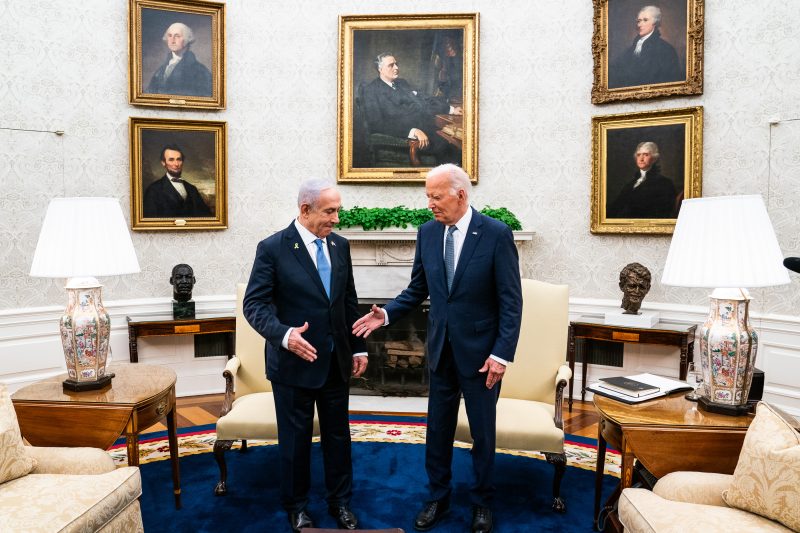In a recent U.S. visit, Israeli Prime Minister Benjamin Netanyahu failed to present a concrete plan for peace, according to critics. This visit, which occurred amidst ongoing tensions in the region, was closely watched by global observers hoping for progress in resolving the Israeli-Palestinian conflict. However, the lack of a workable peace plan put forth during the visit has left many disappointed with the state of diplomatic efforts in the region.
Netanyahu’s meeting with U.S. President Biden was seen as an opportunity to potentially kickstart negotiations and discussions towards a lasting peace agreement. However, critics argue that the Israeli Prime Minister primarily focused on his security concerns and did not offer any significant proposals for advancing the peace process. This perceived lack of initiative has been met with criticism both domestically and internationally.
One key point of contention during the visit was Netanyahu’s approach to the issue of Israeli settlements in the West Bank. The construction and expansion of settlements in the occupied territories have long been a major obstacle to peace negotiations, as they are considered illegal under international law. Critics argue that Netanyahu’s failure to address the settlement issue during his U.S. visit demonstrates a lack of commitment to resolving the underlying factors that perpetuate the conflict.
Additionally, Netanyahu’s stance on the issue of a two-state solution has also come under scrutiny. While the concept of a two-state solution has been widely accepted as the most viable path to peace by the international community, Netanyahu’s government has historically been hesitant to fully endorse the idea. Critics argue that without a clear commitment to a two-state solution, any peace efforts are doomed to fail.
Furthermore, concerns have been raised about the worsening humanitarian situation in Gaza and the lack of progress in addressing the needs of the Palestinian people. The ongoing blockade of Gaza and the deteriorating living conditions in the region have only served to heighten tensions and hinder the prospects for peace.
Overall, Netanyahu’s U.S. visit has left critics disappointed and frustrated with the lack of a clear and workable plan for peace in the region. The failure to address key issues such as settlements and the two-state solution has only served to reinforce existing divisions and prolong the cycle of conflict. As diplomatic efforts continue, it remains to be seen whether meaningful progress can be achieved towards a lasting and comprehensive peace agreement in the Middle East.
